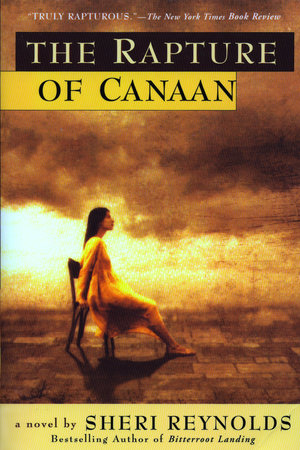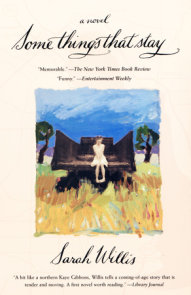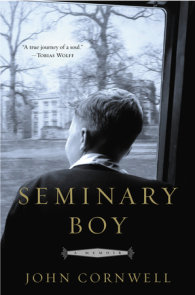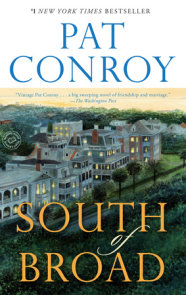READERS GUIDE
Questions and Topics for Discussion
INTRODUCTION
At the Church of Fire and Brimstone and God’s Almighty Baptizing Wind, nearly every pleasure is forbidden, and every action takes place under close scrutiny. Herman Langston, founder of this isolated Pentecostal community, believes he has structured an existence where his followers’ only thoughts are of preparing for God’s rapidly approaching Day of Judgment, “the rapture.”
But for Ninah Huff, Herman’s 14-year-old granddaughter, the world is a much more complicated place. Her passionate pursuit of righteousness has collided with her attraction to her young prayer partner, James. The consequences of their relationship rock the very foundation of the community, and the conception of their child is the catalyst for Ninah’s dramatic coming-of-age.
Told in Ninah’s clear, powerful voice, The Rapture of Canaan is the bittersweet story of a girl’s moving beyond the unquestioning acceptance of religion to a true, loving faith. In the process, she comes to learn that “what is normal is miraculous enough.”
ABOUT SHERI REYNOLDSBorn in rural South Carolina, Sheri Reynolds now lives in Virginia. She has taught English at Virginia Commonwealth University, Old Dominion University, and The College of William and Mary. She is at work on a new novel.
Praise
“The newest and most exciting voice to emerge in contemporary Southern fiction.”—San Francisco Bay Guardian
“Truly rapturous. Ms. Reynolds’s poetic gifts are uncommonly powerful.”—The New York Times Book Review
“Reynolds delivers folksy lyricism…colorful supporting cast…a fresh story. As they say in church, ‘Hallelujah.'”—The Los Angeles Times Book Review
“A riveting, thought-provoking experience…A compelling story.”—The Boston Globe
“Powerful.”—Atlanta Journal & Constitution
Related Titles
Bitterroot Landing
Sheri Reynolds’s first novel is the compelling story of Jael, a woman born into a hard life made more difficult by the constant buzz of competing voices. Some are real, like those of the women in her incest-survivor group; others are more mysterious, like the Virgin Mary’s. But Jael is a survivor, growing stronger all the time…waiting for the day when the only voice she needs is her own…
0-425-15246-X
DISCUSSION QUESTIONSNinah struggles to understand the difference between “good whores” and “women of passion,” as well as the ways society views them. At the novel’s conclusion, what has she learned about being a good woman and about the nature of good and evil, in general?
As Ninah matures, she comes to see Fire and Brimstone “like an island sinking from the weight of fearful hearts” (p. 17). Why is it so difficult for an isolated community to maintain its strength and vision? What is the role of such a group’s leader, and do you consider Herman an effective leader?
The empathy shared by Ninah and her grandmother touches every aspect of the girl’s life. What is the significance of Ninah’s projecting her thoughts and feelings onto the stories Nanna tells about her own past? (See pp. 69-71, pp. 207-212.) Given the relative weakness of her parents’ personalities, what do you think would have happened to Ninah without the gift of Nanna’s presence in her life?
How does the creation of Ninah’s rugs mirror the process of storytelling in the novel? What does Ninah mean when she says that each rug is “never hers” and that “like all lies, loves, stories, it is imperfect, but I could walk on it.” (p. 1-2)?
Why would young people find it difficult to embrace a religion like Fire and Brimstone that focuses on severe discipline and the end of life on earth? By the end of the novel, has Ninah completely rejected her religion? If she chooses to stay in the community, accepting some of the religion’s tenets while disregarding others, can she rightly still be considered a member of her Church? Do you feel a person can be a member of any religion without adhering to all of its beliefs?
In what ways can the beginning of Ninah’s menstrual flow be considered the “inciting moment” of the novel (that is, the circumstance that sets the book’s events in motion)? How does the author use the symbolism of blood to achieve impact at various points in the story? Why is it fitting for Ninah to include blood in her materials for weaving rugs?
How do the harsh punishments administered by Grandpa Herman and the Church lead to Ninah’s mortifying her own flesh? What does the group hope that severe punishment will accomplish, and what does it achieve in actuality? What is the significance of Ninah’s not bothering to sleep on nettles when she discovers she is pregnant?
What is the role of Ninah’s friendships with Ajita and Corinthian in her coming-of-age? How would Ninah and the Fire and Brimstone community have been different if the group’s children were tutored at home rather than taught at public school?
How does the character of Ninah’s grandmother humanize and add to the reader’s understanding of the novel’s other characters, especially Herman? How has Nanna survived so long within the community despite being skeptical of its beliefs, and why doesn’t she take an active role in changing them?
Why does Ninah ironically feel lonely in a community that emphasizes sameness? Why do cults encourage the loss of separate identities among their followers, and why are these followers willing to give them up? How does Ninah’s special status as Canaan’s mother disturb the balance of the Fire and Brimstone community?
In your opinion, what should be the role of religion in shaping the morals of children? Is instilling guilt the best way to promote ethical behavior? What, if anything, can be the alternative? Do you think James and Ninah were adequately prepared by their religion to face temptation and deal with its consequences? Why, or why not?
Why does the conferred status of “the New Messiah” paradoxically strip Canaan of his dignity? How does Ninah’s final act in the novel restore it? How does the author utilize acts of cutting throughout the book as metaphors for Ninah’s severing the bonds of her childhood and her religion?





















